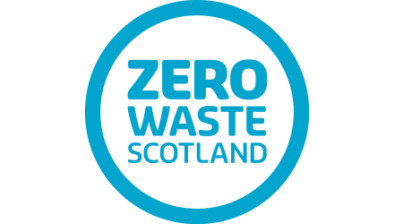And finally… Scottish Water to put drains on a diet with fatbergs pilot
 Scottish Water is trialling a six-month pilot project in St Andrews to combat fatbergs and reduce the risk of major flooding and pollution.
Scottish Water is trialling a six-month pilot project in St Andrews to combat fatbergs and reduce the risk of major flooding and pollution.
The project aims to substantially reduce the number of blockages in the sewer system caused by fat, oil and grease – referred to as FOG - being incorrectly disposed of by businesses which serve food.
More than half of all blockages in Scotland’s sewers are caused by FOG being disposed of incorrectly down drains and sinks. It is the build-up of these substances which cause fatbergs which block the sewers and cause flooding and pollution.
The Fat Free Sewer project will see every food service establishment including take-aways, cafes, restaurants and hotels visited by food waste management experts.
Businesses will be advised on the best ways to dispose of FOG.
A team of Network Protection Officers from Environmental Compliance & Services (ECAS) will visit food service establishments on behalf of Scottish Water in the busiest part of central St Andrews.
If the project succeeds in cutting blockages in St Andrews due to FOG it will be rolled out to other parts of Scotland.
https://youtu.be/_sYKferuisY
Mike Will, waste water operations general manager at Scottish Water, said: “Many blockages in our sewer network occur as a result of the incorrect disposal of fats and oils into the sewer system. The consequences on the environment can be huge – it can cause flooding to properties and roads and pollute rivers, as well as impacting valuable assets such as bathing waters.
“Currently Scottish Water visits food service establishments on a reactive basis, once blockages have occurred. In some cases these are a one off events, but sometimes we do get called to the same locations.
“This pilot project, for the first time, will see us proactively visiting food serving premises, giving them advice and guidance on what they can do to protect and preserve our valuable sewer network. We are effectively attempting to put St Andrews’ drains on a diet.
“Even the way businesses wash pots, plates and utensils with greasy residue on them can have a profound impact on our sewers. FOG congeals in our sewers and causes blockages. Additionally if you combine FOG to other things which should not be in our network – such as wet wipes and sanitary items – the consequences can be catastrophic in terms of flooding and pollution.”
Iain Clunie, food and drink programme manager at Zero Waste Scotland, added: “At Zero Waste Scotland, we’re always keen to encourage businesses to waste as little as possible. It’s not just food waste that can be recycled – cooking oils can also be turned into valuable products such as biofuels. There are a range of services on offer for collecting and recycling used cooking oils and I hope businesses will consider them as part of their plans for keeping fats, oils and grease out of our drains.”
Scottish Water is working with ECAS and the Environmental team at Fife Council on the project.























